Shopping Cart
Remove All Your shopping cart is currently empty
Your shopping cart is currently empty
Anti-PCNA Polyclonal Antibody 2 is a Rabbit antibody targeting PCNA. Anti-PCNA Polyclonal Antibody 2 can be used in FCM, IF, IHC-Fr, IHC-P, WB.
| Pack Size | Price | USA Warehouse | Global Warehouse | Quantity |
|---|---|---|---|---|
| 50 μL | $221 | 7-10 days | 7-10 days | |
| 100 μL | $372 | 7-10 days | 7-10 days | |
| 200 μL | $528 | 7-10 days | 7-10 days |
| Description | Anti-PCNA Polyclonal Antibody 2 is a Rabbit antibody targeting PCNA. Anti-PCNA Polyclonal Antibody 2 can be used in FCM, IF, IHC-Fr, IHC-P, WB. |
| Synonyms | proliferating cell nuclear antigen, ATLD2 |
| Ig Type | IgG |
| Reactivity | Human,Mouse,Rat (predicted:Cow,Rabbit) |
| Verified Activity | 1. sample: A549 cells ((blue) Ice-cold 70% ethanol was added and the cells were incubated for overnight at 4°C. and then resuspended in ice-cold 90% methanol for 30 min on ice.) Primary Antibody: Rabbit Anti-PCNA antibody (TMAB-01342) (green) Isotype Control Antibody: Rabbit IgG (orange) Secondary Antibody: f (ab/)2 fragment goat anti-rabbit IgG-FITC (white blue) 2. Blank control (blue line): U251 (blue). Primary Antibody (green line): Rabbit Anti-PCNA antibody (TMAB-01342) Dilution: 3 μg/10^6 cells; Isotype Control Antibody (orange line): Rabbit IgG. Secondary Antibody (white blue line): Goat anti-rabbit IgG-PE Dilution: 1 μg/test. Protocol The cells were fixed with 2% paraformaldehyde (10 min) and then permeabilized with 0.1% PBS-Tween for 20 min at room temperature. Cells stained with Primary Antibody for 30 min at room temperature. The cells were then incubated in 1 X PBS/2% BSA/10% goat serum to block non-specific protein-protein interactions followed by the antibody for 15 min at room temperature. The secondary antibody used for 40 min at room temperature. 3. 25 μg total protein per Lane of various lysates probed with PCNA polyclonal antibody, unconjugated (TMAB-01342) at 1:1000 dilution and 4°C overnight incubation. Followed by conjugated secondary antibody incubation at RT for 60 min. 4. Paraformaldehyde-fixed, paraffin embedded Mouse Liver; Antigen retrieval by boiling in sodium citrate buffer (pH6.0) for 15 min; Antibody incubation with PCNA Polyclonal Antibody, Unconjugated (TMAB-01342) at 1:800 overnight at 4°C, followed by conjugation to the SP Kit (Rabbit) and DAB staining. 5. Paraformaldehyde-fixed, paraffin embedded Rat Liver; Antigen retrieval by boiling in sodium citrate buffer (pH6.0) for 15 min; Antibody incubation with PCNA Polyclonal Antibody, Unconjugated (TMAB-01342) at 1:800 overnight at 4°C, followed by conjugation to the SP Kit (Rabbit) and DAB staining. 6. Paraformaldehyde-fixed, paraffin embedded Rat Colon; Antigen retrieval by boiling in sodium citrate buffer (pH6.0) for 15 min; Antibody incubation with PCNA Polyclonal Antibody, Unconjugated (TMAB-01342) at 1:800 overnight at 4°C, followed by conjugation to the SP Kit (Rabbit) and DAB staining. 7. Paraformaldehyde-fixed, paraffin embedded Human Liver Cancer; Antigen retrieval by boiling in sodium citrate buffer (pH6.0) for 15 min; Antibody incubation with PCNA Polyclonal Antibody, Unconjugated (TMAB-01342) at 1:800 overnight at 4°C, followed by conjugation to the SP Kit (Rabbit) and DAB staining. 8. Paraformaldehyde-fixed, paraffin embedded Human Glioma; Antigen retrieval by boiling in sodium citrate buffer (pH6.0) for 15 min; Antibody incubation with PCNA Polyclonal Antibody, Unconjugated (TMAB-01342) at 1:800 overnight at 4°C, followed by conjugation to the SP Kit (Rabbit) and DAB staining. 9. Paraformaldehyde-fixed, paraffin embedded Human Tonsil; Antigen retrieval by boiling in sodium citrate buffer (pH6.0) for 15 min; Antibody incubation with PCNA Polyclonal Antibody, Unconjugated (TMAB-01342) at 1:800 overnight at 4°C, followed by conjugation to the SP Kit (Rabbit) and DAB staining. 10. Paraformaldehyde-fixed, paraffin embedded Human Testicles; Antigen retrieval by boiling in sodium citrate buffer (pH6.0) for 15 min; Antibody incubation with PCNA Polyclonal Antibody, Unconjugated (TMAB-01342) at 1:800 overnight at 4°C, followed by conjugation to the SP Kit (Rabbit) and DAB staining. 11. Paraformaldehyde-fixed, paraffin embedded Human Colon; Antigen retrieval by boiling in sodium citrate buffer (pH6.0) for 15 min; Antibody incubation with PCNA Polyclonal Antibody, Unconjugated (TMAB-01342) at 1:800 overnight at 4°C, followed by conjugation to the SP Kit (Rabbit) and DAB staining. 12. Paraformaldehyde-fixed, paraffin embedded Human Spleen; Antigen retrieval by boiling in sodium citrate buffer (pH6.0) for 15 min; Antibody incubation with PCNA Polyclonal Antibody, Unconjugated (TMAB-01342) at 1:800 overnight at 4°C, followed by conjugation to the SP Kit (Rabbit) and DAB staining. 13. Paraformaldehyde-fixed, paraffin embedded Human Breast Cancer; Antigen retrieval by boiling in sodium citrate buffer (pH6.0) for 15 min; Antibody incubation with PCNA Polyclonal Antibody, Unconjugated (TMAB-01342) at 1:800 overnight at 4°C, followed by conjugation to the SP Kit (Rabbit) and DAB staining. 14. Paraformaldehyde-fixed, paraffin embedded Mouse Testis; Antigen retrieval by boiling in sodium citrate buffer (pH6.0) for 15 min; Antibody incubation with PCNA Polyclonal Antibody, Unconjugated (TMAB-01342) at 1:500 overnight at 4°C, followed by conjugation to the SP Kit (Rabbit) and DAB staining. 15. Paraformaldehyde-fixed, paraffin embedded Rat Testis; Antigen retrieval by boiling in sodium citrate buffer (pH6.0) for 15 min; Antibody incubation with PCNA Polyclonal Antibody, Unconjugated (TMAB-01342) at 1:500 overnight at 4°C, followed by conjugation to the SP Kit (Rabbit) and DAB staining. 16. Paraformaldehyde-fixed, paraffin embedded Mouse Spleen; Antigen retrieval by boiling in sodium citrate buffer (pH6.0) for 15 min; Antibody incubation with PCNA Polyclonal Antibody, Unconjugated (TMAB-01342) at 1:500 overnight at 4°C, followed by conjugation to the SP Kit (Rabbit) and DAB staining. 17. Paraformaldehyde-fixed, paraffin embedded Rat Spleen; Antigen retrieval by boiling in sodium citrate buffer (pH6.0) for 15 min; Antibody incubation with PCNA Polyclonal Antibody, Unconjugated (TMAB-01342) at 1:500 overnight at 4°C, followed by conjugation to the SP Kit (Rabbit) and DAB staining. 18. Paraformaldehyde-fixed, paraffin embedded Rat Kidney; Antigen retrieval by boiling in sodium citrate buffer (pH6.0) for 15 min; Antibody incubation with PCNA Polyclonal Antibody, Unconjugated (TMAB-01342) at 1:500 overnight at 4°C, followed by conjugation to the SP Kit (Rabbit) and DAB staining. 19. Paraformaldehyde-fixed, paraffin embedded Rat Heart; Antigen retrieval by boiling in sodium citrate buffer (pH6.0) for 15 min; Antibody incubation with PCNA Polyclonal Antibody, Unconjugated (TMAB-01342) at 1:500 overnight at 4°C, followed by conjugation to the SP Kit (Rabbit) and DAB staining. 20. Paraformaldehyde-fixed, paraffin embedded Human Liver; Antigen retrieval by boiling in sodium citrate buffer (pH6.0) for 15 min; Antibody incubation with PCNA Polyclonal Antibody, Unconjugated (TMAB-01342) at 1:500 overnight at 4°C, followed by conjugation to the SP Kit (Rabbit) and DAB staining. 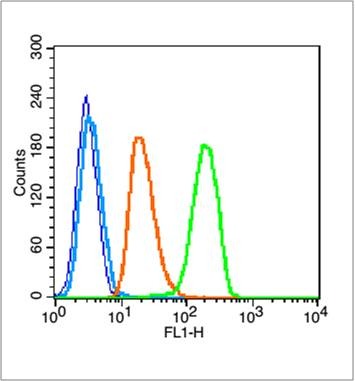 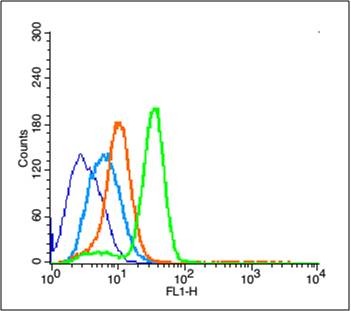 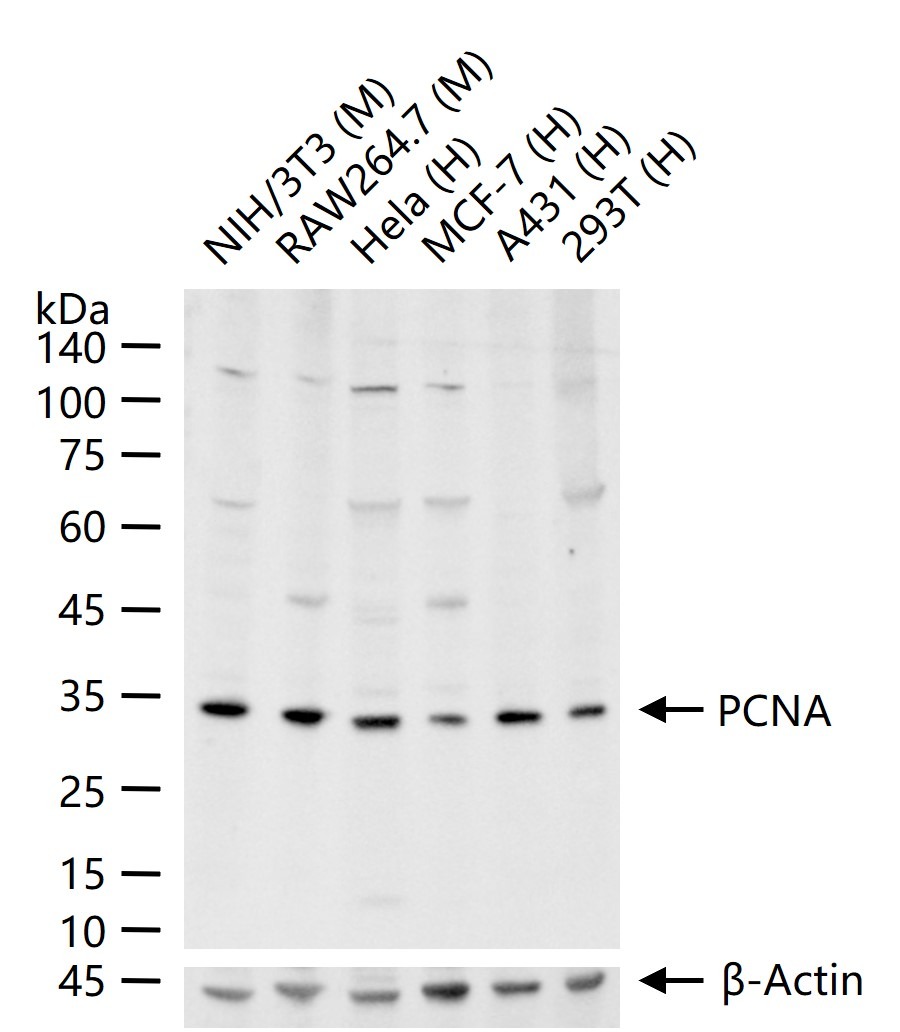 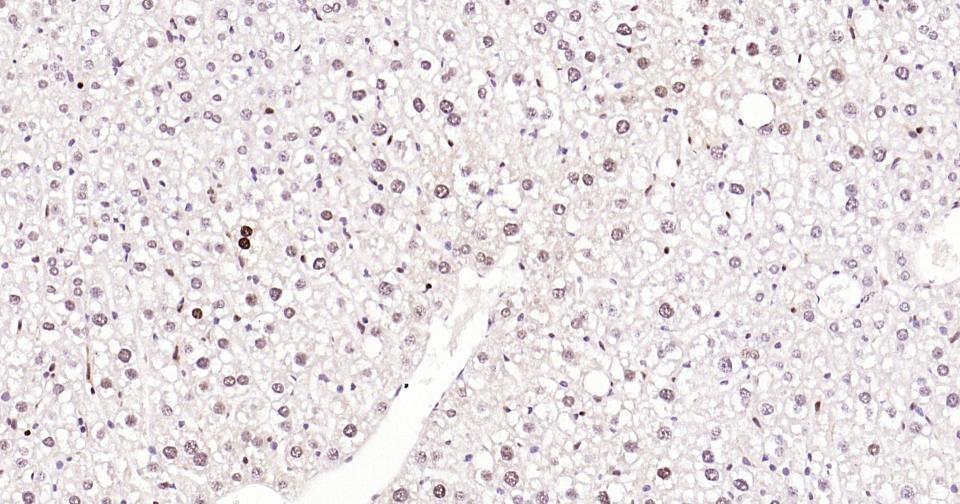 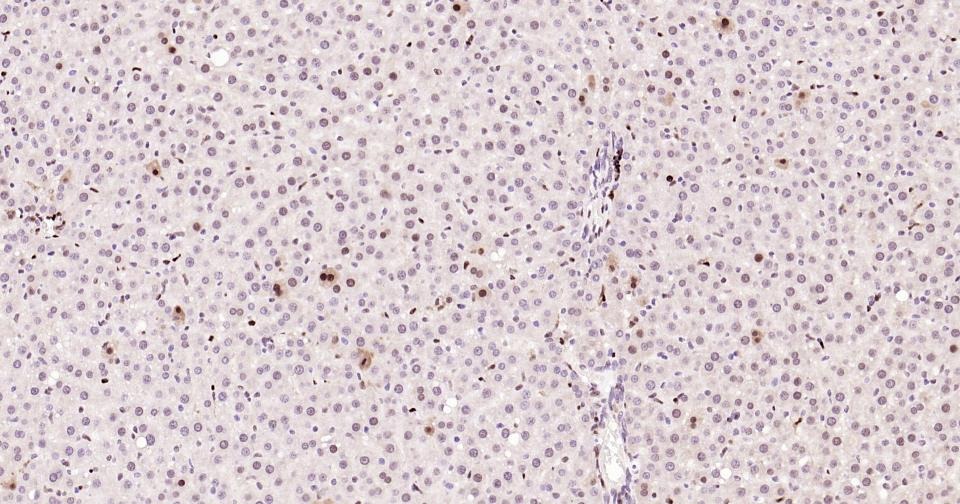 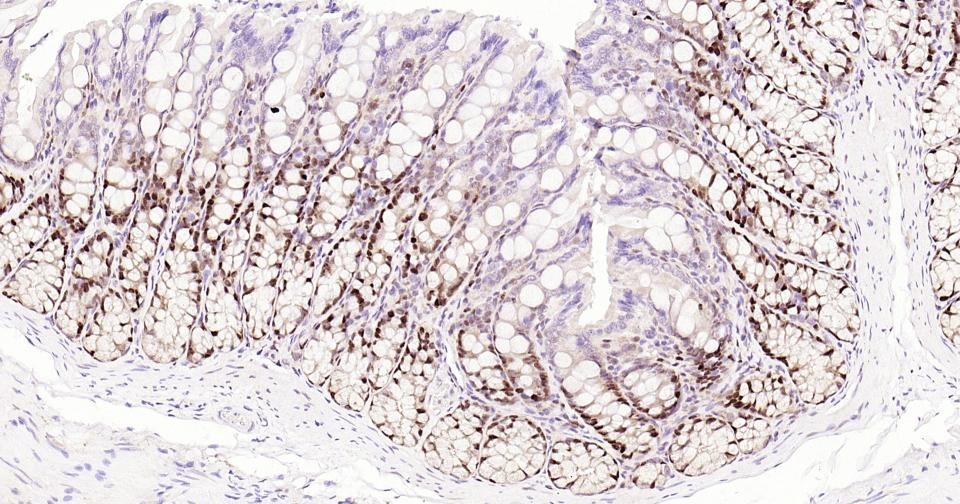 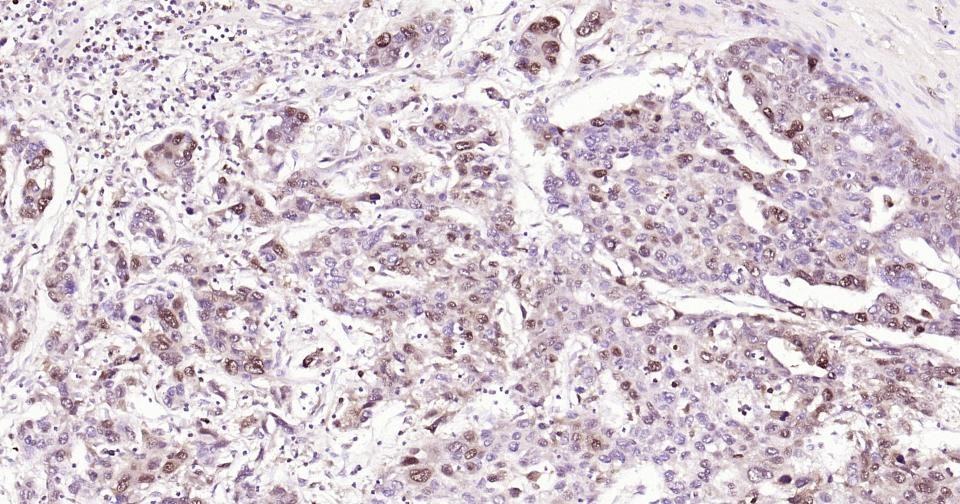 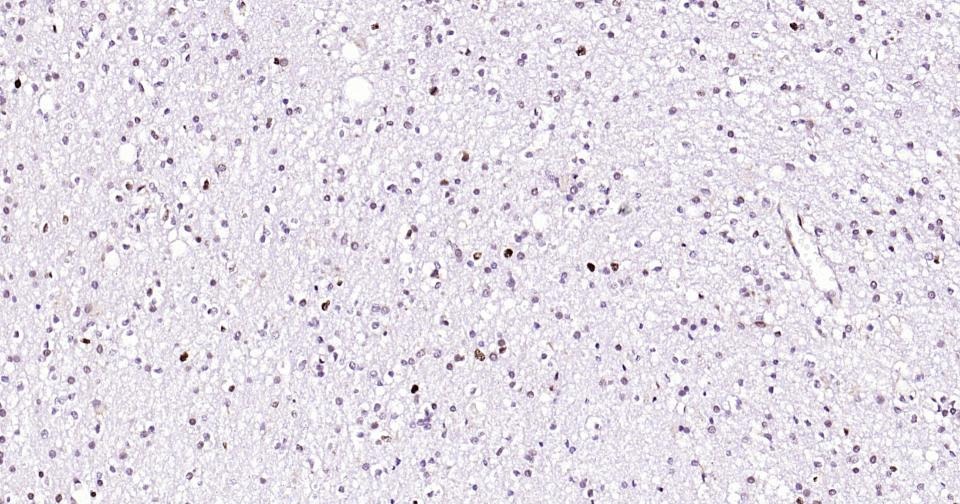 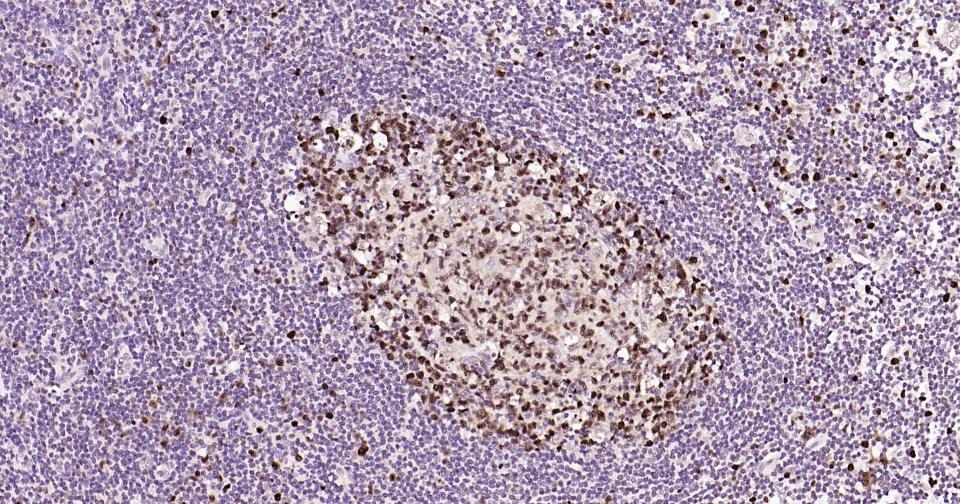 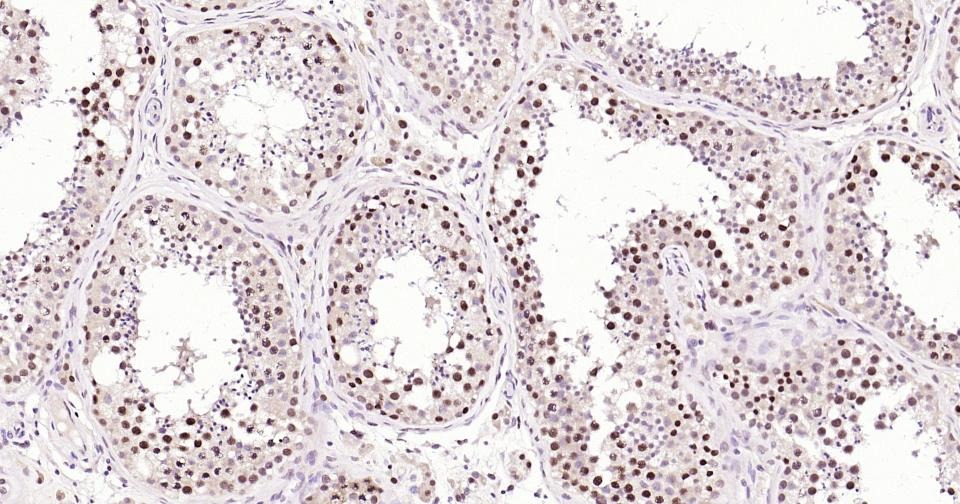 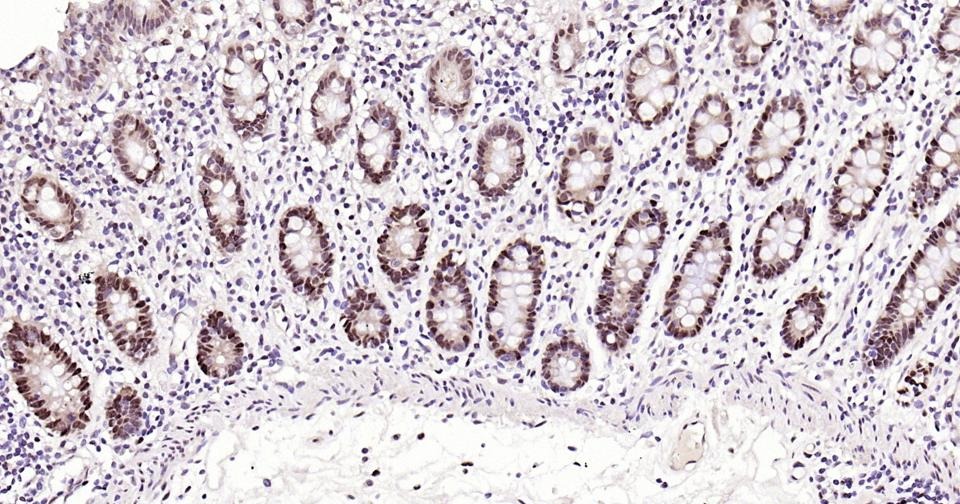 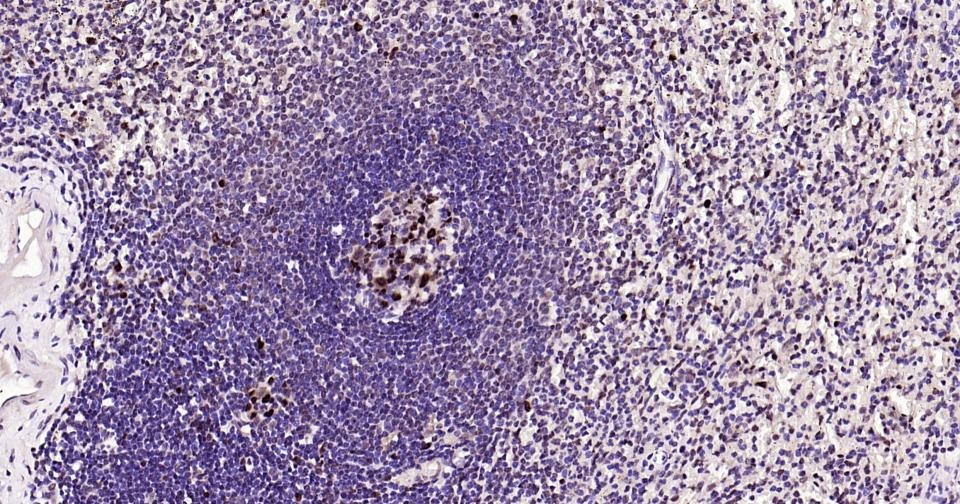 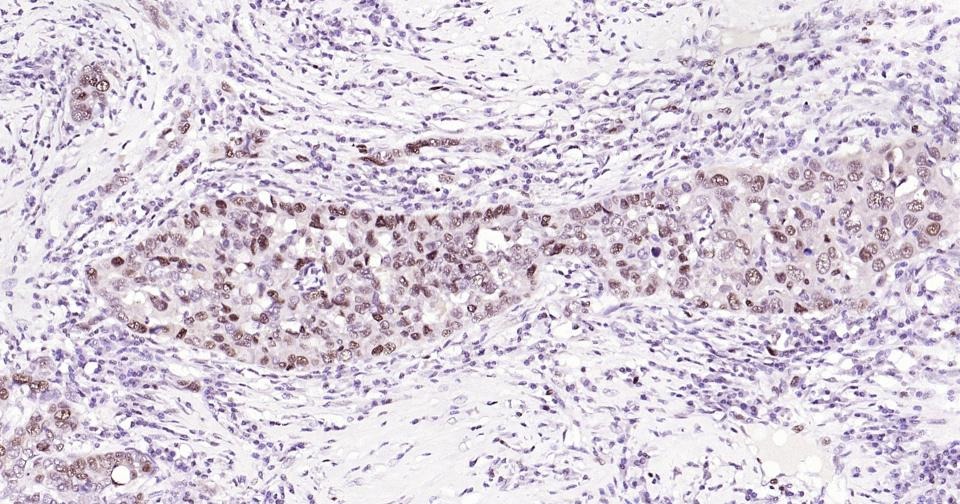 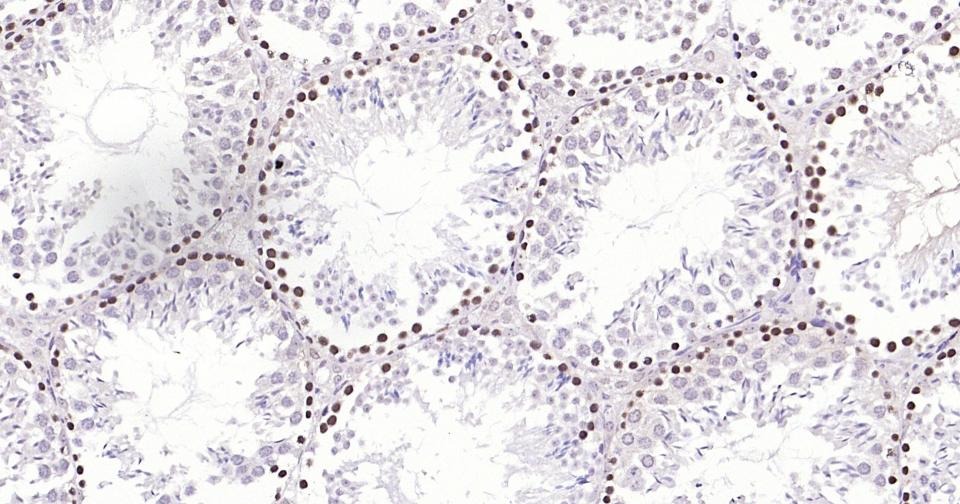 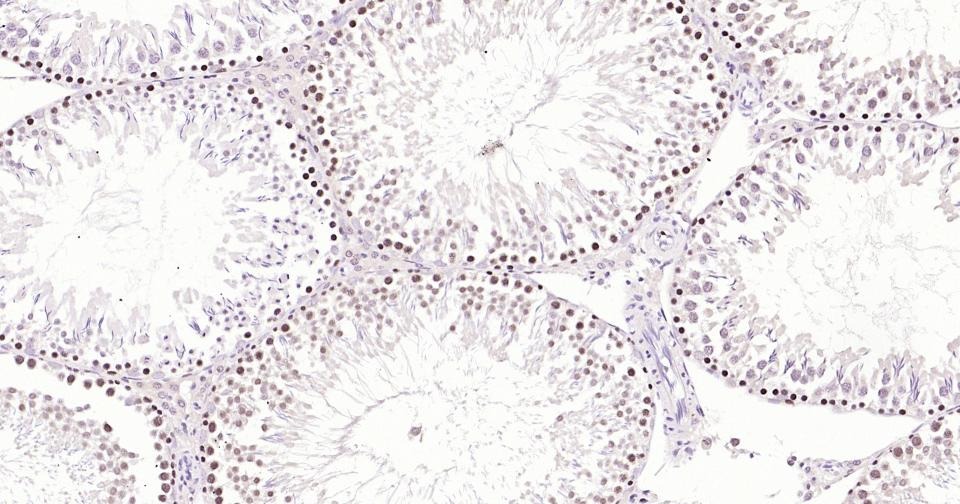 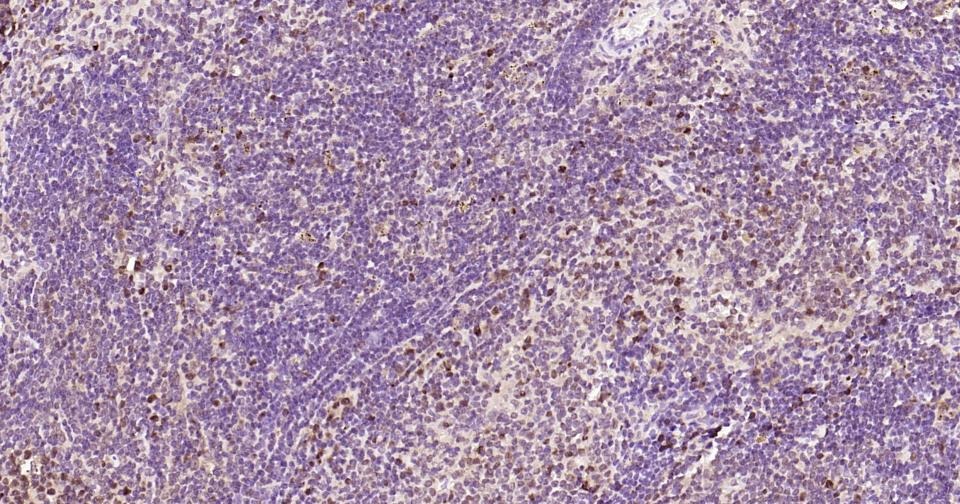 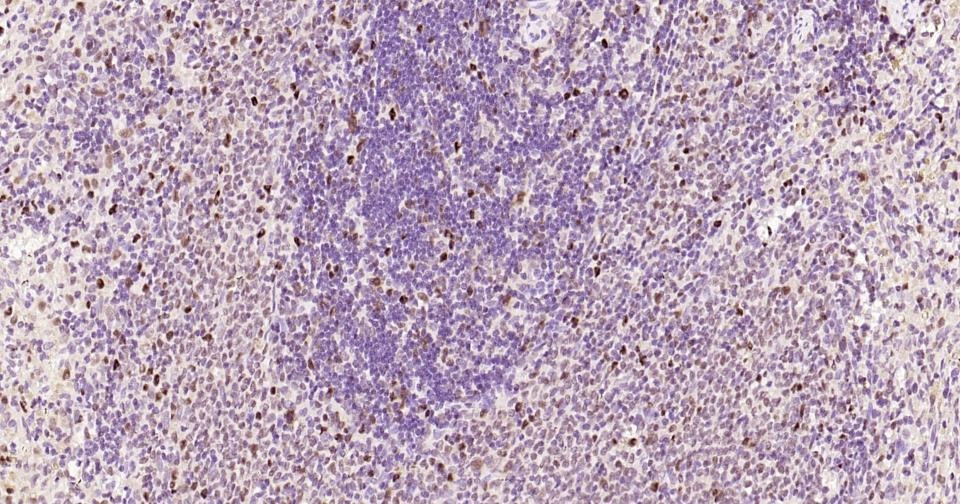 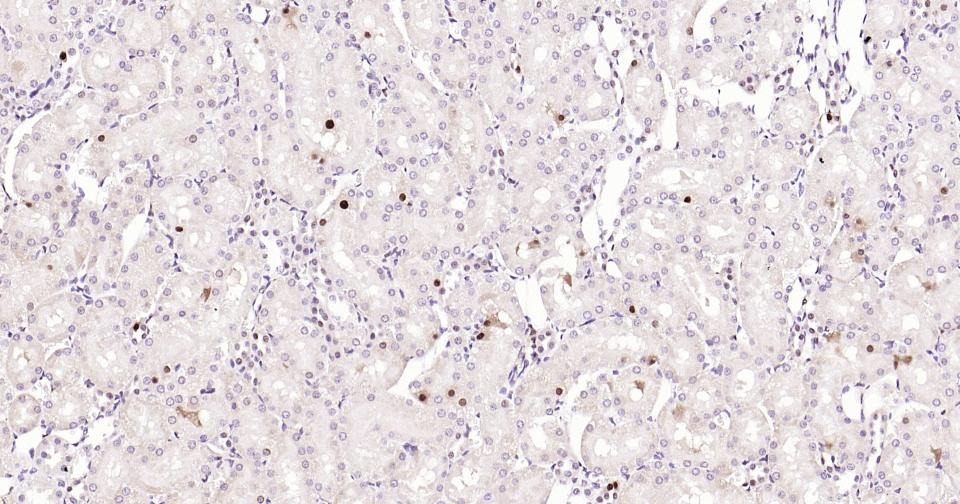 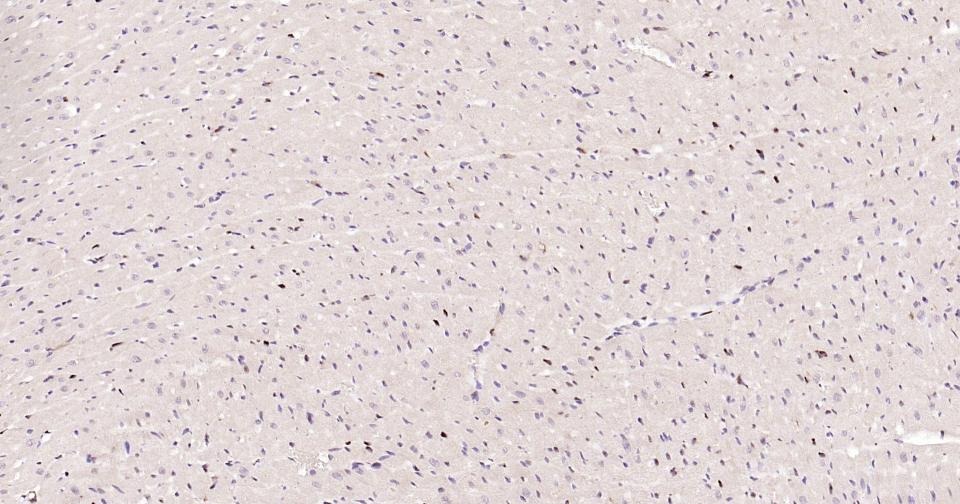 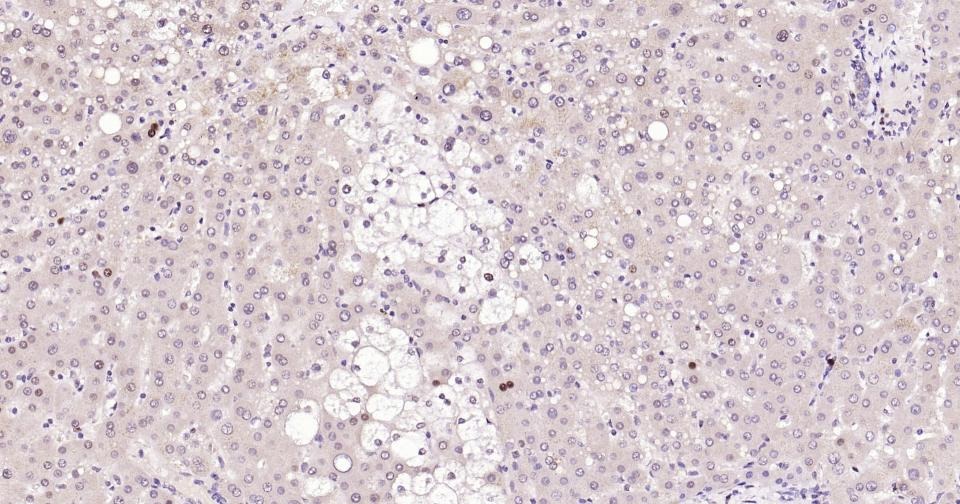 |
| Application | |
| Recommended Dose | WB: 1:500-2000; IHC-P: 1:200-800; IHC-Fr: 1:200-800; IF: 1:200-800; FCM: 1μg/Test |
| Antibody Type | Polyclonal |
| Host Species | Rabbit |
| Subcellular Localization | Nucleus. Note=Forms nuclear foci representing sites of ongoing DNA replication and vary in morphology and number during S phase. Together with APEX2, is redistributed in discrete nuclear foci in presence of oxidative DNA damaging agents. |
| Construction | Polyclonal Antibody |
| Purification | Protein A purified |
| Appearance | Liquid |
| Formulation | 0.01M TBS (pH7.4) with 1% BSA, 0.02% Proclin300 and 50% Glycerol. |
| Concentration | 1 mg/mL |
| Research Background | Proliferating cell nuclear antigen (PCNA) is a 28kDa nuclear protein associated with the cell cycle, a nuclear protein vital for cellular DNA synthesis. Proliferating cell nuclear antigen was originally identified by immunofluorescence as a nuclear protein whose appearance correlated with the proliferate state of the cell. PCNA is required for replication of DNA in vitro and has been identified as the auxiliary protein (cofactor) for DNA polymerase delta. The anti-PCNA antibodies react with the nuclei of proliferating cells. PCNA is essential for cellular DNA synthesis and is also required for the in vitro replication of simian virus 40 (SV40) DNA where it acts to coordinate leading and lagging strand synthesis at the replication fork. The PCNA protein may fulfil several separate roles in the cell nucleus associated with changes in its antigenic structure. |
| Immunogen | KLH conjugated synthetic peptide: human PCNA |
| Antigen Species | Human |
| Gene Name | PCNA |
| Gene ID | |
| Protein Name | Proliferating cell nuclear antigen |
| Uniprot ID | |
| Biology Area | Cell division,Tumor antigens,Markers,DNA / RNA binding,DNA Synthesis,Methylated DNA Binding,PCNA,Replication |
| Function | Auxiliary protein of DNA polymerase delta and epsilon, is involved in the control of eukaryotic DNA replication by increasing the polymerase's processibility during elongation of the leading strand (PubMed:35585232).Induces a robust stimulatory effect on the 3'-5' exonuclease and 3'-phosphodiesterase, but not apurinic-apyrimidinic (AP) endonuclease, APEX2 activities. Has to be loaded onto DNA in order to be able to stimulate APEX2. Plays a key role in DNA damage response (DDR) by being conveniently positioned at the replication fork to coordinate DNA replication with DNA repair and DNA damage tolerance pathways (PubMed:24939902).Acts as a loading platform to recruit DDR proteins that allow completion of DNA replication after DNA damage and promote postreplication repair: Monoubiquitinated PCNA leads to recruitment of translesion (TLS) polymerases, while 'Lys-63'-linked polyubiquitination of PCNA is involved in error-free pathway and employs recombination mechanisms to synthesize across the lesion (PubMed:24695737). |
| Molecular Weight | Theoretical: 29 kDa. |
| Stability & Storage | Store at -20°C or -80°C for 12 months. Avoid repeated freeze-thaw cycles. |
| Transport | Shipping with blue ice. |
| Size | Quantity | Unit Price | Amount | Operation |
|---|

Copyright © 2015-2026 TargetMol Chemicals Inc. All Rights Reserved.